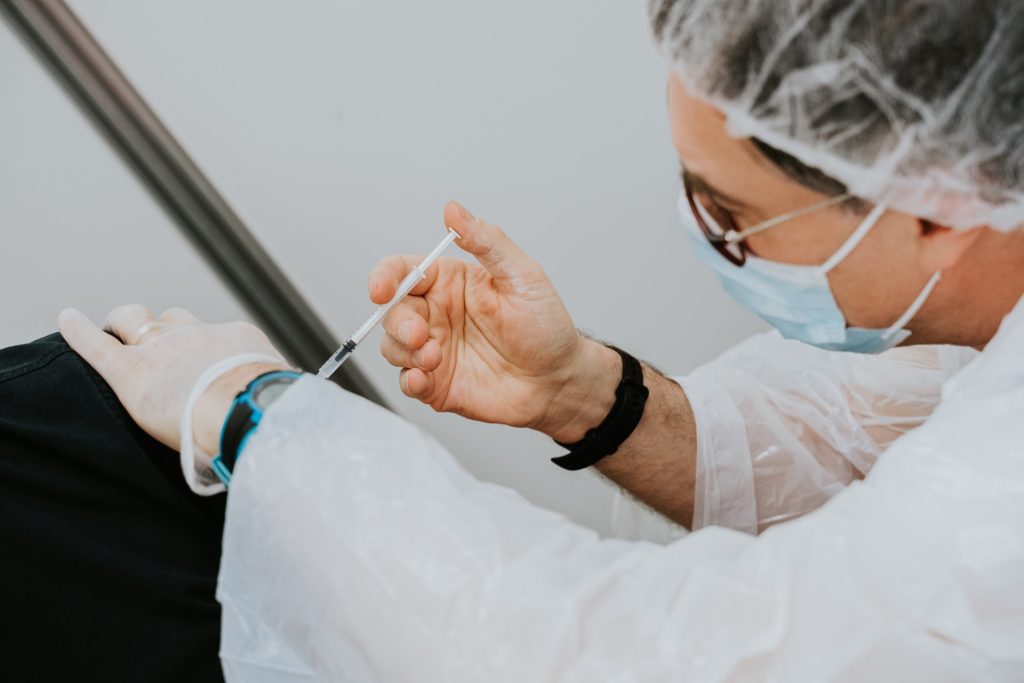Real-world Data Shows Booster Shot Protective against Omicron

While two doses of a COVID vaccine offered less protection against Omicron, a booster shot restored immunity back to high levels, according to real-world data from the UK.
Two doses of Pfizer vaccine provided just under 40% protection against symptomatic infection with the Omicron variant about 25 weeks after the second dose compared with around 60% protection against Delta, according to a technical briefing released by the UK Health Security Agency. [PDF]
“These early estimates suggest that vaccine effectiveness against symptomatic disease with the Omicron variant is significantly lower than compared to the Delta variant,” the agency noted in the report. However, “moderate to high” vaccine effectiveness was observed in the early period after a booster shot, they added.
The agency found that a Pfizer booster increased vaccine effectiveness to 76%. Among people who received the AstraZeneca series for their initial immunisation (which offered almost no protection against Omicron), vaccine effectiveness jumped to 71% after a Pfizer booster.
The reportcompared vaccine effectiveness against Omicron versus Delta, including 581 people who were infected with the new strain and more than 56 000 infected with Delta from the end of November to December 6.
Omicron’s reinfection rate was also much higher than Delta’s. Of 329 individuals infected with Omicron, 7% had a previous infection, compared with 0.4% of the approximately 85 000 people infected with Delta.
After adjustments for age and area, the risk ratio of reinfection for Omicron was 5.2 (95% CI 3.4-7.6).
The report also found a 20- to 40-fold reduction in neutralising antibody activity compared with the viruses used to develop the vaccines. However, a booster dose significantly improved neutralising antibodies, regardless of which vaccine was given in the initial immunisation.
Katelyn Jetelina, PhD, an epidemiologist at the University of Texas Health Science Center at Houston, said that the study data confirm what researchers have already discovered in lab research: vaccines offer significantly less protection against Omicron, and reinfection rates are expected to be high.
Dr Jetelina noted that it was reassuring to see that “we can curb infection still with a booster, which is really quite phenomenal.” However, she said that cases were likely to increase.
“I think all this data is showing us that we’re going to have a lot of infections with Omicron,” Jetelina told MedPage Today. While a high rate of infection does not necessarily translate to severe illness, Dr Jetelina said that she is concerned about population-level outcomes resulting from a flood of new cases.
“That’s where I get a bit more nervous,” she said. She pointed out that “even if the rate of severe disease is low […] those numbers start adding up real quickly.”
The UK Health Security Agency advised interpreting the results with caution, due to the low number of Omicron cases. Additionally, more data are needed before scientists can determine how well vaccines will work against severe illness, hospitalisation, and death from the Omicron strain.
“It will be a few weeks before effectiveness against severe disease with Omicron can be estimated,” the agency stated. “However, based on this experience, this is likely to be substantially higher than the estimates against symptomatic disease.”
Source: MedPage Today


